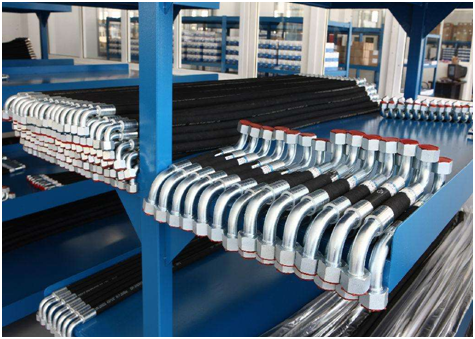Industrial waste material conveying hose: selection standards and industry adaptation guide
2025-07-28 09:40:12
In today's industrial production, waste treatment and material transportation have become an indispensable part of corporate operations. In this process, industrial waste material conveying hoses, as an important tool, play a vital role. This article will discuss in detail the types, characteristics, application fields and matters that need to be paid attention to when purchasing industrial waste material conveying hoses, to help you better understand the importance of this equipment.
1. Definition and function of industrial waste material conveying hoses
Industrial waste material conveying hoses are special pipes used to transport industrial waste and materials, usually made of wear-resistant and corrosion-resistant materials. Its main function is to effectively transfer various industrial waste materials (such as dust, particulate matter, liquid, etc.) from one location to another, reduce manual intervention, and improve work efficiency.
In modern industry, with the expansion of production scale and the complexity of process, how to efficiently and safely handle waste has become an urgent problem to be solved. At this time, the application of material conveying hose is particularly important. It can not only increase the speed of material conveying, but also effectively prevent the leakage and secondary pollution of waste during the transmission process, and ensure the cleanliness and safety of the production environment.
2. Types of industrial waste material conveying hoses
Industrial waste material conveying hoses can be divided into many types according to their structure, materials and uses:
1. Flexible conveying hose: This hose is made of elastic material and has good bending properties. It is suitable for use in occasions with limited space or frequent movement. Suitable for conveying dust, particulate matter, etc.
2. Hard conveying pipe: Compared with flexible pipes, hard pipes are more suitable for long-distance and high-pressure material conveying scenarios. They are usually made of steel or other strong materials, resistant to high temperature and corrosion, and suitable for conveying liquid waste.
3. Composite conveying hose: This hose is made of a variety of materials, designed to combine the advantages of different materials to provide better wear resistance and corrosion resistance. It is usually used in high-risk industries such as chemicals and mining.
4. Dust collection conveying hose: Mainly used in industrial dust collection systems to collect dust and particles into the vacuum cleaner. This type of hose requires a relatively large inner diameter to ensure strong suction.
5. High temperature and high pressure conveying hose: Suitable for conveying environments that need to withstand high temperature and high pressure, such as metal processing, petrochemicals and other fields. This hose is usually made of special synthetic materials.
3. Application field
The application field of industrial waste material conveying hose is very wide, covering multiple industries, including but not limited to:
1. Construction and civil engineering: During the construction process, it is difficult to quickly clean and transport waste. The use of material conveying hoses can effectively improve work efficiency.
2. Mining: During the extraction and processing of ore, the transportation of waste and slurry is crucial. Suitable conveying hoses can ensure the safety and stability of transportation.
3. Chemical industry: In the process of chemical production, the handling and transportation of many chemicals require professional conveying equipment. Material conveying hoses can meet the conveying needs of highly corrosive substances.
4. Food processing: In the food industry, hygiene is the primary consideration. The use of conveying hoses that meet food safety standards can effectively avoid cross contamination.
5. Pharmaceutical industry: The pharmaceutical industry has very strict requirements on hygiene and materials. Specific conveying hoses can ensure the safety and effectiveness of drug production.
4. Precautions for purchasing industrial waste material conveying hoses
When purchasing industrial waste material conveying hoses, you need to consider the following aspects:
1. Purpose: Clarify the type and properties of the materials to be conveyed, as well as the requirements of the conveying environment, in order to select a suitable hose.
2. Corrosion resistance: For the transportation of chemical substances, the corrosion resistance of the hose is the top priority.
3. Temperature resistance and pressure resistance: For occasions with high requirements for conveying temperature and pressure, it is necessary to select a hose with corresponding performance.
4. The diameter and length of the hose: Determine the diameter and length of the hose according to the actual conveying needs to ensure the conveying efficiency.
5. Connection method: Understand the connection system of the hose to ensure compatibility with other equipment and avoid air or liquid leakage.
6. Brand and quality: Choose products from well-known brands, the quality is more guaranteed, and the after-sales service will be more complete.
Industrial waste material conveying hoses play a pivotal role in today's industrial production. Through in-depth analysis of its types, materials, application areas and purchase recommendations, we can find that the correct selection and use of industrial waste material conveying hoses can not only improve work efficiency, but also ensure a safe and clean production environment. I hope this article can help you better understand this important tool and provide you with reference and guidance in industrial production.